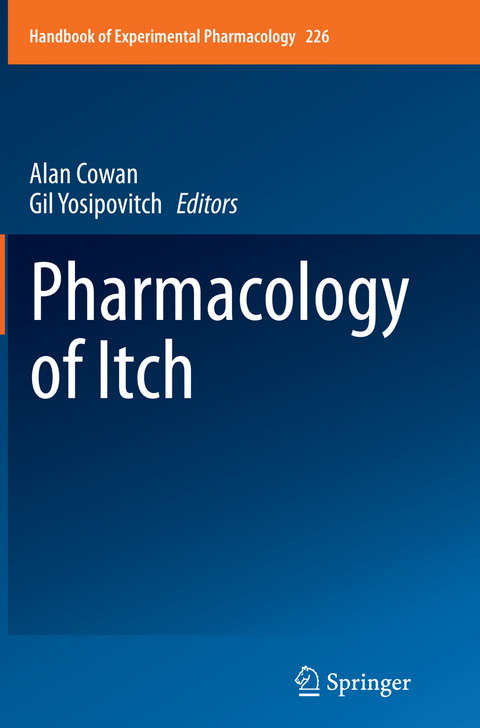
Pharmacology of Itch
Springer Berlin (Verlag)
978-3-662-51280-7 (ISBN)
Historical Background.- Epidemiology of the Burden of Chronic Itch.- Neurophysiology and Itch Pathways.- Brain Mechanisms of Chronic Itch.- Mouse and Human Models of Itch. Transient Receptor Potential Channels and Itch.- Cytokines and Itch.- Role of Mrgpr Family of Receptors and Itch.- Protease-activated Receptor Agonists and Itch.- VGLUT2-dependent Sensory Neurons and Itch.- Identification and Characterization of Spinal Inhibitory Neurons That Inhibit Itch.- Noradrenergic Itch Transmission in the Spinal Cord.- NK-1 Antagonists and Itch.- Cannabinoids and Itch.- Antihistamines and Itch.- Targeting Itch with Ligands Selective for k Opioid Receptors.- Neuraxial Opioid-induced Scratching and Its Pharmacological Antagonism.- Topical Therapies.- Allergic Itch in Dogs.
| Erscheinungsdatum | 21.10.2016 |
|---|---|
| Reihe/Serie | Handbook of Experimental Pharmacology |
| Zusatzinfo | VIII, 382 p. 42 illus., 34 illus. in color. |
| Verlagsort | Berlin |
| Sprache | englisch |
| Maße | 155 x 235 mm |
| Gewicht | 565 g |
| Themenwelt | Medizin / Pharmazie ► Medizinische Fachgebiete ► Pharmakologie / Pharmakotherapie |
| Medizin / Pharmazie ► Pharmazie | |
| Schlagworte | allergies • Allergology • Anaesthetics • Anesthesiology • Biomedical and Life Sciences • chronic itch • Dermatology • immunology • itch and pain • itch models • itch suppression • Medical Research • new antipruritics • Pain and pain management • Pain Medicine • pharmacology • Pharmacology/Toxicology |
| ISBN-10 | 3-662-51280-7 / 3662512807 |
| ISBN-13 | 978-3-662-51280-7 / 9783662512807 |
| Zustand | Neuware |
| Informationen gemäß Produktsicherheitsverordnung (GPSR) | |
| Haben Sie eine Frage zum Produkt? |
aus dem Bereich


